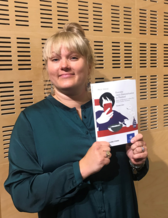(Anti-)nationalization processes in Thailand
Katrina Gaber’s doctoral thesis on (anti-)nationalization processes in Thailand was successfully defended at the School of Global Studies on 11 September 2020.
Title
Everyday (Anti-)Nationalization: Power and Resistance in Khao Phra Wihan Conflict Narratives
Area
Society and
economy
